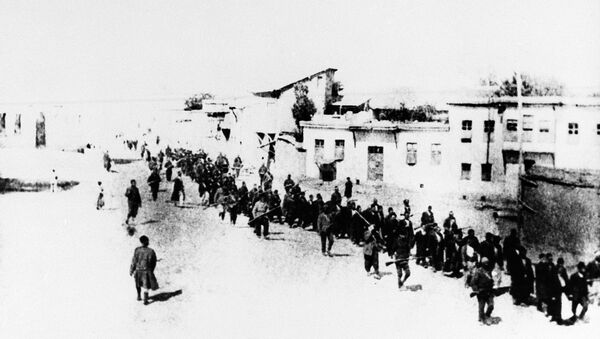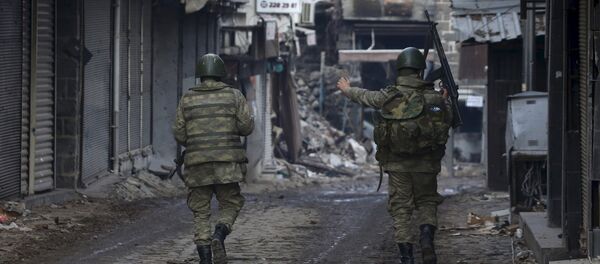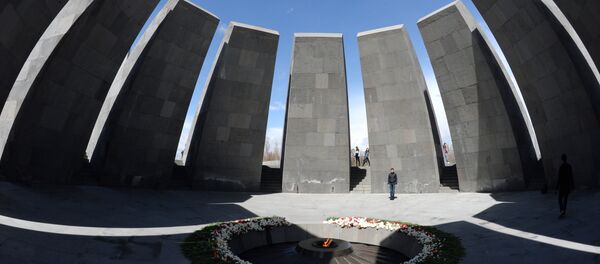Ahead of the vote, Turkish Prime Minister Binali Yildirim called the vote "absurd and wanton," and warned that the resolution would damage German-Turkish relations.
After the vote, Turkey recalled its ambassador to Germany, and Yildrim said that "Turkey is not going to accept the decision of the German parliament on the subject."
Commenting on the decision by German lawmakers, Selina Dogan, an MP from the opposition Republican People's Party, told Sputnik Turkey that it was long past time for Ankara to agree with the international community's opinion that the massacre of Armenians was a crime against humanity.
A member of the Turkish parliaments' Committee on Relations with the European Commission, and an ethnic Armenian herself, Dogan insisted that her party "is insisting on the formation of a special parliamentary commission to investigate this crime against humanity."
"Unfortunately," the politician noted, "at the moment this initiative does not have a strong basis. Our country has neither a well-functioning parliamentary system, nor freedom of speech."
The lawmaker pointed out "the content of the German resolution differs from other bills which were discussed earlier. The present resolution contains a recognition of Germany's own responsibility for this tragedy. This country, which has lived through fascism, has prepared the text of a bill which proposes facing up to and accepting the truth. Germany has extensive archives filled with documents, and the admission of its own responsibility was the result of active work by researchers in the German archives."
In this sense, Dogan suggested, "it's time for Turkey to stop hiding its head in the sand on this issue. The deportation was a crime against humanity; it was for this reason that many European countries have joined the conventions on the need to prevent genocide. The parliaments of these countries have committed themselves to implementing the provisions of these conventions."
For his part, Faruk Logoglu, the former First Deputy Foreign Ministry, ex-MP and former Turkish Ambassador to the United States, told Sputnik that he believes that the timing of this particular resolution has to do with the foreign policy of Turkey's current leadership.
"In my opinion, the main responsibility for the adoption of this resolution is held by the current government," Logoglu said. "Today Ankara is carrying out a failed foreign policy, which fails in literally every direction. And this resolution is the price to pay for our foreign policy failures."
According to Armenian estimates, about 1.5 million ethnic Armenians were systematically killed, and over 600,000 more driven from their homes, by the Ottoman government during and after the First World War. Modern-day Turkey, the successor of the Ottoman Empire, has refused to use the word genocide to refer to the massacre, saying that Turkish nationals we also among the victims. The massacre has been recognized as genocide by 27 countries around the world, including Russia.




